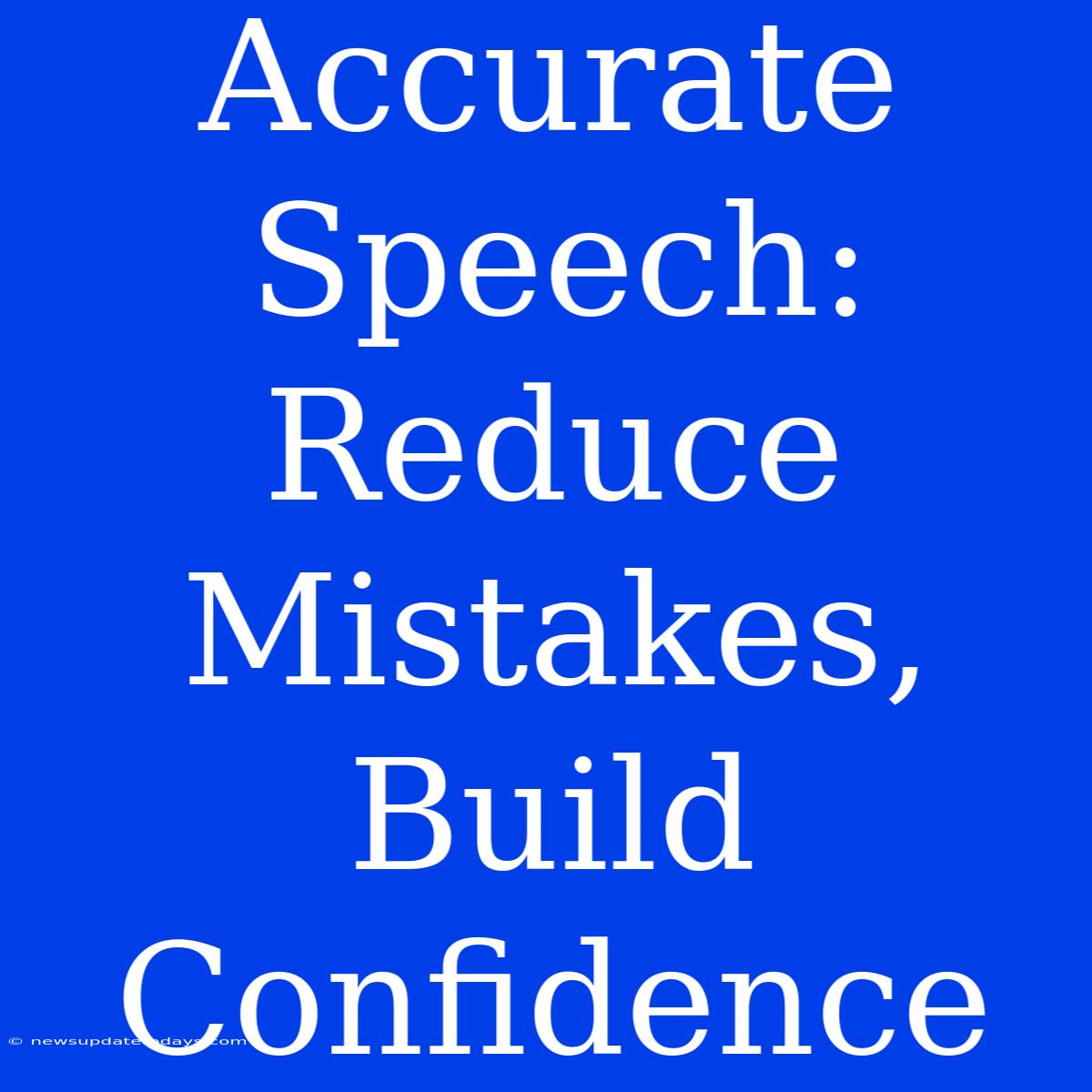Accurate Speech: Reduce Mistakes, Build Confidence
Speaking accurately and confidently is a highly sought-after skill. Whether you're delivering a presentation to a large audience, conducting a crucial business meeting, or simply engaging in everyday conversations, precise speech significantly impacts how you're perceived. This article delves into practical strategies to minimize speech errors and cultivate confident communication.
Understanding the Roots of Inaccurate Speech
Before tackling solutions, it's crucial to identify the underlying causes of speech inaccuracies. These can stem from various factors:
- Lack of Preparation: Improper planning and insufficient rehearsal leave ample room for errors and hesitation.
- Nervousness and Anxiety: Stage fright or anxiety in social situations can significantly impair fluency and accuracy.
- Poor Articulation: Difficulties with pronunciation, enunciation, or pacing can lead to misinterpretations.
- Limited Vocabulary: A restricted vocabulary can hinder the ability to express oneself clearly and concisely.
- Insufficient Practice: Like any skill, speaking requires consistent practice to refine accuracy and fluency.
Strategies for Achieving Accurate Speech
Improving your speech accuracy is a journey, not a destination. Consistent effort and dedicated practice will yield significant improvements. Here are some effective strategies:
1. Preparation is Key:
- Thorough Research: Invest time in researching your topic thoroughly. A solid understanding of your subject matter will bolster your confidence and minimize the likelihood of factual errors.
- Structured Outlines: Create detailed outlines to organize your thoughts logically. This structure provides a roadmap for your speech, preventing tangents and ensuring a coherent flow.
- Rehearse, Rehearse, Rehearse: Practice your speech multiple times, ideally in front of a mirror or a trusted friend. This allows you to identify areas needing improvement and build confidence.
2. Mastering Articulation and Pronunciation:
- Tongue Twisters: Regularly practice tongue twisters to improve articulation and mouth muscle control.
- Record Yourself: Record yourself speaking and listen critically. Identify areas where pronunciation or articulation needs improvement.
- Seek Feedback: Ask trusted friends or colleagues for feedback on your speech. Constructive criticism can help pinpoint specific weaknesses.
3. Expanding Your Vocabulary:
- Read Widely: Reading diverse materials expands your vocabulary and exposes you to different writing styles.
- Use a Thesaurus: Use a thesaurus to find synonyms and improve word choice.
- Learn New Words Daily: Make a conscious effort to learn at least one new word each day.
4. Managing Nervousness:
- Deep Breathing Exercises: Practice deep breathing techniques to calm your nerves before speaking.
- Visualization: Visualize yourself delivering a successful speech. Positive visualization can significantly reduce anxiety.
- Positive Self-Talk: Replace negative self-talk with positive affirmations.
5. Consistent Practice:
- Engage in Conversations: Actively participate in conversations to practice your speaking skills in a low-pressure environment.
- Join a Toastmasters Club: Toastmasters International provides a supportive environment to practice public speaking and receive constructive feedback.
- Record and Review: Regularly record yourself speaking and review your performance to track your progress and identify areas for improvement.
Building Confidence Through Accurate Speech
As your accuracy improves, so will your confidence. Accurate speech fosters credibility and strengthens your communication impact. Remember, consistent effort and dedicated practice are crucial for achieving fluent, confident, and accurate communication. By implementing these strategies, you can significantly improve your speaking abilities and build the confidence to communicate effectively in any situation.

